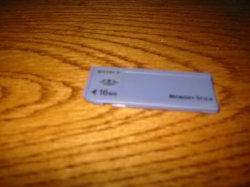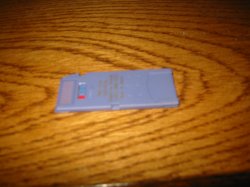If you have an old Core2 or Athlon X2 PC collecting dust, they make decent backup NAS units depending on what you need. Slap a couple of 4TB drives, use software RAID1 to mirror them, create a network share with limited access and point the backup software of your choice to that. You could also do a flavor of Linux like Ubuntu, Mint, Debian, Ubuntu Server, etc...and run Samba for sure. I backup my work laptop to my Athlon X2 HP that's setup that way with Ubuntu 16, works perfect. You could also use Intel RAID or buy a RAID card...a Dell Perc 6/i is very cheap and easy to manage...but not necessary for most users. Mirroring is pretty easy compared to RAID 5 and 6 where parity is necessary among the array's drives.
I see far too many USB drives failing, but they are definitely an option and a cheap one at that...just have a spare because these modern USB drives sure seem to fail more frequently and some of the USB3 drives come with the USB3 interface on the HDD logic board rather than a SATA to USB interface...so not able to take some of the drives out and just plug into SATA.
I've seen and worked with some RAID 5 and 6 arrays using 4TB drives, rebuild times weren't nearly as bad as I was fearing, but the hardware and software behind the RAID, along with cache and BBU make a difference in how performance is impacted or improved in many cases.
For a simple home setup, USB HDD would be the easy go-to as suggested above. But if someone could source an old office PC based on Athlon X2 or Core2, slap a couple HDD's in there, re-use the Win 7 Pro license, set the HDD's to be mirrored. Create a backup share folder. A more complex setup would be a small SSD for OS, and 2 HDD's for backups only. Mirrored arrays are very easy to work with and the whole point of it is if one drive fails the other is a mirror copy. Swap in a new drive, add to the mirror and move on, it'll perform the task while you're working away on your current PC.
Depending on platform and choices, you have software options too...ranging from using something like FreeNAS as an AIO OS/Software solution, Linux has some options, Windows has a bunch, I prefer Macrium Reflect Free and Veeam Endpoint Backup Free. Assuming the PC you're backing up is Windows based, and how you want backups to occur and how large they will be could bring a few factors into effect. Do you want to simply clone the data over, or do you want to create backup images and files? Then with that do you want to create a full image nightly or do you want to do a full image weekly/monthly and have incremental backups occur nightly? There's pro's and cons to each and if you keep with free software, you'll find the two I recommend have their strong and weak points. We can get to that once you decide what it is you're going to do though. Windows backup works as well...but there are better free solutions out there.
My personal setup on my file server is a RAID5, I use Windows Server Backup to backup to an array that is managed by Windows Server Storage Spaces. It works for now but has room for improvement. And I would use better backup software but I end up diagnosing so many issues in the field with Server Backup I try to duplicate those on my home rig since it's my lab as well.
There's lot's of ways to go about this, depends on how you want your files backed up...or if you want them merely copied. I'd recommend doing backup images, but that's my preference. It also comes down to your experience. If you're not familiar with some network concepts or setting static IP addresses, you might be better off with some USB backup hard drives for now until you are better able to manage the situation for a NAS. So we should clear up what you want, need and are capable of before moving further forward IMHO.







